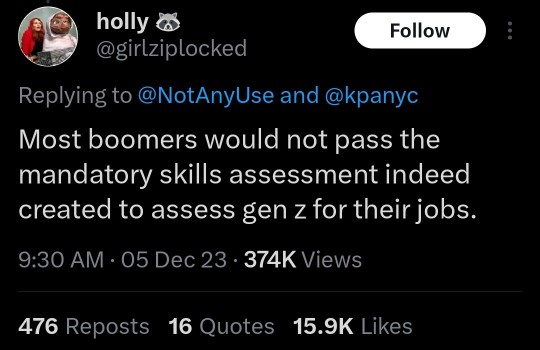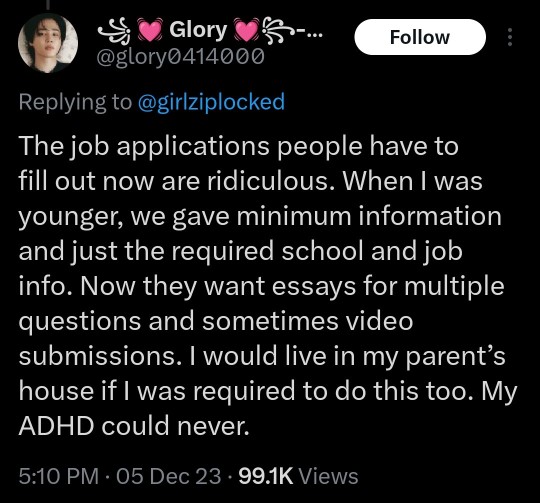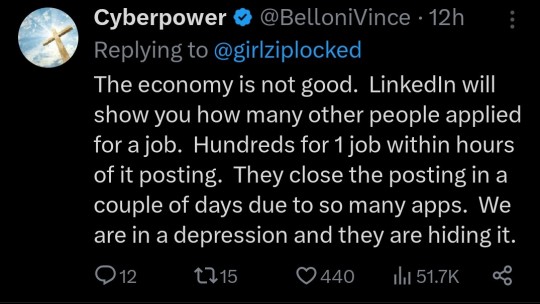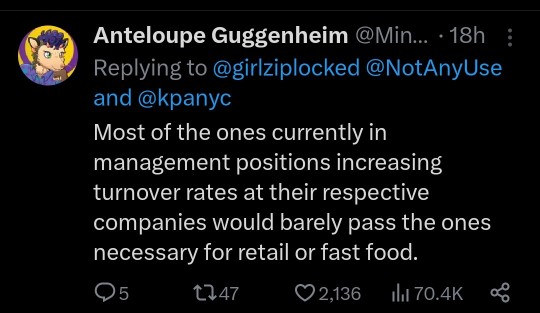#Gen Z Marketing
Explore tagged Tumblr posts
Text





69K notes
·
View notes
Text
Gen Z Marketing: Understanding And Engaging The Next Generation Of Consumers

Move over Millennials, there’s a new generation in town – Gen Z. Born between the mid-1990s and early 2000s, this tech-savvy group of young adults is reshaping the marketing landscape as we know it. In this blog post, we will dive into the world of Gen Z marketing, exploring how to understand and engage with these digital natives to capture their attention and loyalty. Let’s explore what makes Gen Z tick and how your brand can connect with this influential demographic.
Introduction To Gen Z And Their Characteristics
In the dynamic world of marketing, it’s crucial for businesses to stay attuned to the shifting demographics and behaviors of their target audience. As the torchbearers of the future, Generation Z (Gen Z) is rapidly emerging as a dominant force in consumer culture. Born between the mid-1990s and early 2010s, Gen Z is characterized by a unique set of traits and preferences that set them apart from previous generations. In this blog post, we’ll provide an introduction to Gen Z and explore some of their key characteristics.
1. Digital Natives
One of the defining features of Gen Z is their status as digital natives. Unlike previous generations, who witnessed the rise of the internet and digital technology later in life, Gen Z has grown up in a world where technology is ubiquitous and omnipresent. From smartphones and social media to streaming services and online gaming, Gen Z is highly proficient in navigating the digital landscape and relies heavily on technology for communication, entertainment, and education.
2. Diversity and Inclusion
Gen Z is the most diverse generation in history, with members representing a wide range of cultural backgrounds, ethnicities, and identities. They are more inclusive and accepting of diversity than previous generations and value representation and equality in all aspects of society. Gen Z expects brands and institutions to reflect and celebrate the diversity of the world around them and is quick to support companies that embrace diversity and promote inclusivity.
3. Socially Conscious
Gen Z is socially conscious and passionate about making a positive impact on the world. They are concerned about social and environmental issues such as climate change, racial justice, and gender equality and are vocal advocates for change. Gen Z expects brands and institutions to take a stand on important issues and support causes they care about, and they are more likely to support companies that demonstrate a commitment to social responsibility and sustainability.
4. Entrepreneurial Spirit
Gen Z is characterized by its entrepreneurial spirit and desire for independence and self-expression. They are more likely to pursue unconventional career paths, start their own businesses, and seek opportunities for creative expression and self-fulfillment. Gen Z values autonomy and flexibility in the workplace and seeks out opportunities that allow them to pursue their passions and make a meaningful impact on the world.
5. Short Attention Spans
Growing up in a world of constant digital stimulation, Gen Z has developed shorter attention spans than previous generations. They are accustomed to consuming information quickly and easily and have little patience for long-winded explanations or complex narratives. Gen Z prefers bite-sized content that can be consumed quickly and easily on the go, such as short videos, memes, and GIFs.

Importance Of Understanding Gen Z In Marketing
In the ever-evolving landscape of marketing, staying ahead of trends and understanding your target audience is crucial for success. With Generation Z (Gen Z) emerging as a dominant force in consumer behavior, it’s imperative for businesses to grasp the unique characteristics and preferences of this demographic. In this blog post, we’ll explore why understanding Gen Z is essential for effective marketing strategies and how businesses can harness this knowledge to connect with the next generation of consumers.
1. Gen Z Represents the Future of Consumer Spending
As the oldest members of Gen Z enter adulthood and the workforce, they are becoming an increasingly influential demographic in the marketplace. With their purchasing power on the rise, Gen Z is poised to shape the future of consumer spending and drive trends across industries. Businesses that understand the values, behaviors, and preferences of Gen Z will be better positioned to capture their attention and earn their loyalty.
2. Gen Z Sets the Bar for Digital Engagement
Gen Z is the first generation to grow up entirely in the digital age, with access to technology and information at their fingertips from a young age. They are highly proficient in using digital devices and platforms for communication, entertainment, and learning. As such, Gen Z sets the bar for digital engagement, driving trends in social media, content consumption, and online interaction. Businesses that understand the digital habits and preferences of Gen Z can create targeted marketing campaigns that resonate with this tech-savvy audience.
3. Gen Z Values Authenticity and Social Responsibility
Unlike previous generations, Gen Z places a high value on authenticity, transparency, and social responsibility in brand communications. They are quick to detect inauthentic or overly promotional messaging and are more likely to engage with brands that are genuine, relatable, and socially responsible. Businesses that prioritize authenticity and demonstrate a genuine understanding of Gen Z’s values and interests can build trust and credibility with this audience, leading to long-term brand loyalty.
4. Gen Z Drives Cultural Trends and Influences Peer Groups
Gen Z is a highly connected and socially conscious generation that drives cultural trends and influences peer groups both online and offline. They are early adopters of new technologies, social media platforms, and cultural movements, and their opinions and preferences have a significant impact on their peers. Businesses that understand the cultural trends and preferences of Gen Z can leverage this knowledge to create marketing campaigns that resonate with their target audience and drive word-of-mouth recommendations and brand advocacy.
5. Gen Z Demands Personalized Experiences
Gen Z consumers expect personalized experiences and recommendations tailored to their individual preferences and interests. They are accustomed to curated content and targeted advertising that speaks directly to them, and they are more likely to engage with brands that deliver personalized experiences. Businesses that leverage data analytics and customer insights to understand the needs and preferences of Gen Z can create personalized marketing campaigns that drive engagement and conversion rates.
What Makes Gen Z Different From Previous Generations?
As society evolves and technology advances, each new generation brings its own set of values, behaviors, and attitudes shaped by the world they grow up in. Generation Z, born between the mid-1990s and early 2010s, represents a demographic cohort that is distinct from previous generations in several key ways. In this blog post, we’ll explore what sets Gen Z apart from previous generations and how these differences impact their attitudes, behaviors, and interactions with the world around them.
1. Digital Natives
Perhaps the most defining characteristic of Generation Z is their status as digital natives. Unlike previous generations, who grew up with limited access to technology and the internet, Gen Z has been immersed in digital technology from a young age. They are highly proficient in using smartphones, tablets, and computers, and they rely heavily on digital devices and online platforms for communication, entertainment, and learning.
2. Access to Information
Thanks to the internet and social media, Gen Z has unprecedented access to information and knowledge on a wide range of topics. They are accustomed to instant access to information and expect answers to their questions at their fingertips. This access to information has made Gen Z more informed and empowered than previous generations, enabling them to educate themselves on issues that matter to them and advocate for change.
3. Diversity and Inclusion
Gen Z is the most diverse generation in history, with members representing a wide range of cultural backgrounds, identities, and perspectives. They are more inclusive and accepting of diversity than previous generations and are quick to embrace people of different races, genders, sexual orientations, and beliefs. Gen Z values diversity and expects brands and institutions to reflect and celebrate the diversity of the world around them.
4. Socially Conscious
Gen Z is socially conscious and passionate about making a positive impact on the world. They are concerned about social and environmental issues such as climate change, racial justice, and gender equality, and they expect brands and institutions to take a stand on important issues and support causes they care about. Gen Z is more likely to support businesses that demonstrate a commitment to social responsibility and sustainability and are quick to boycott brands that engage in unethical or exploitative practices.
5. Entrepreneurial Spirit
Gen Z is characterized by its entrepreneurial spirit and desire for independence and self-expression. They are more likely to pursue unconventional career paths, start their own businesses, and seek opportunities for creative expression and self-fulfillment. Gen Z values autonomy and flexibility in the workplace and seeks out opportunities that allow them to pursue their passions and make a meaningful impact on the world.
6. Short Attention Spans
Growing up in a world of constant digital stimulation, Gen Z has developed shorter attention spans than previous generations. They are accustomed to consuming information quickly and easily and have little patience for long-winded explanations or complex narratives. Gen Z prefers bite-sized content that can be consumed quickly and easily on the go, such as short videos, memes, and GIFs.
Key Trends And Behaviors Of Gen Z Consumers
Generation Z, born between the mid-1990s and early 2010s, represents a demographic cohort with unique preferences, behaviors, and attitudes shaped by their experiences growing up in the digital age. As the first generation to be fully immersed in technology and social media from a young age, Gen Z consumers have distinct characteristics that set them apart from previous generations. In this blog post, we’ll explore some key trends and behaviors of Gen Z consumers and discuss their implications for businesses looking to connect with this influential demographic.
1. Digital Natives
Gen Z is the first generation to grow up entirely in the digital age, with access to technology and information at their fingertips from a young age. They are highly proficient in using digital devices and platforms for communication, entertainment, and learning. Gen Z consumers are constantly connected and rely heavily on smartphones, social media, and online platforms to stay connected with friends, consume content, and make purchasing decisions.
Implication for Businesses: To effectively engage with Gen Z consumers, businesses must embrace digital marketing channels and create mobile-friendly, visually appealing content that resonates with their digital lifestyles. Leveraging social media platforms and online communities where Gen Z spends most of their time can help businesses reach and connect with this audience effectively.
2. Authenticity Matters
Gen Z consumers value authenticity and transparency in brand communications. They are highly skeptical of traditional advertising tactics and are more likely to trust brands that are genuine, relatable, and socially responsible. Gen Z consumers expect brands to be transparent about their values, practices, and impact on society, and they are quick to call out brands that engage in greenwashing or unethical behavior.
Implication for Businesses: Businesses must prioritize authenticity and transparency in their marketing efforts and demonstrate a genuine understanding of Gen Z’s values and interests. Building trust with Gen Z consumers requires businesses to engage in meaningful conversations, listen to their feedback, and demonstrate a commitment to social responsibility and sustainability.
3. Diversity and Inclusion
Gen Z is the most diverse generation in history, with members representing a wide range of cultural backgrounds, identities, and perspectives. They value diversity and inclusion and expect brands to reflect and celebrate the diverse communities they serve. Gen Z consumers are quick to support brands that embrace diversity and promote inclusivity, and they are more likely to boycott brands that engage in discriminatory practices or fail to represent diverse voices.
Implication for Businesses: Businesses must prioritize diversity and inclusion in their marketing efforts and ensure that their messaging, imagery, and products reflect the diversity of their audience. Embracing diversity and promoting inclusivity can help businesses build stronger connections with Gen Z consumers and earn their loyalty and advocacy.
4. Socially Conscious Consumers
Gen Z consumers are socially conscious and passionate about making a positive impact on the world. They are concerned about social and environmental issues such as climate change, racial justice, and gender equality, and they expect brands to take a stand on important issues and support causes they care about. Gen Z consumers are more likely to support brands that demonstrate a commitment to social responsibility and sustainability and are quick to boycott brands that engage in unethical or exploitative practices.
Implication for Businesses: Businesses must demonstrate a genuine commitment to social responsibility and sustainability to resonate with Gen Z consumers. Supporting charitable initiatives, promoting environmental sustainability, and advocating for social justice can help businesses build trust and credibility with this socially conscious audience.
5. Visual and Interactive Content
Gen Z consumers gravitate towards visual and interactive content that is engaging, shareable, and easily digestible. They have short attention spans and prefer bite-sized content that can be consumed quickly and easily on the go. Gen Z consumers are avid consumers of videos, memes, GIFs, and other visual content on social media platforms like Instagram, TikTok, and Snapchat, and they are more likely to engage with brands that create visually appealing and interactive experiences.
Implication for Businesses: Businesses must create visually appealing and interactive content that captures the attention of Gen Z consumers and drives engagement and interaction. Leveraging multimedia formats such as videos, GIFs, and memes can help businesses stand out in crowded digital environments and resonate with Gen Z’s preferences for visual and interactive content.
Strategies For Effectively Engaging With Gen Z Through Marketing
Generation Z, born between the mid-1990s and early 2010s, represents a significant and influential demographic with unique preferences, behaviors, and expectations. To effectively engage with Gen Z consumers, businesses must adopt marketing strategies that resonate with their values, interests, and digital lifestyles. In this blog post, we’ll explore some key strategies for effectively engaging with Gen Z through marketing and driving meaningful connections with this important demographic.
1. Authenticity is Key
Gen Z consumers value authenticity and transparency in brand communications. They can quickly detect inauthentic or overly promotional messaging and are more likely to engage with brands that are genuine, relatable, and socially responsible. To effectively engage with Gen Z, businesses must prioritize authenticity in their marketing efforts and demonstrate a genuine understanding of their audience’s needs and preferences.
Strategy: Showcase your brand’s values, mission, and impact authentically through storytelling and content that resonates with Gen Z consumers. Be transparent in your communications, engage in meaningful conversations, and demonstrate a commitment to social responsibility to build trust and credibility with this audience.
2. Embrace Digital Platforms
Gen Z is the first generation to grow up entirely in the digital age, with access to technology and information at their fingertips from a young age. They are highly proficient in using digital devices and platforms to communicate, consume content, and make purchasing decisions. To effectively engage with Gen Z, businesses must leverage digital platforms and social media channels where this audience spends most of their time online.
Strategy: Establish a strong presence on popular social media platforms like Instagram, TikTok, Snapchat, and YouTube to reach Gen Z consumers where they are most active. Create engaging and shareable content that resonates with their interests and values, and leverage interactive features like polls, quizzes, and challenges to foster engagement and interaction with your brand.
3. Embrace Diversity and Inclusion
Gen Z is the most diverse generation in history, with members representing a wide range of cultural backgrounds, identities, and perspectives. Businesses must recognize and respect this diversity when targeting Gen Z consumers and ensure that their marketing efforts are inclusive and representative of the diverse communities they serve. Failure to do so can alienate segments of the Gen Z population and damage brand reputation.
Strategy: Embrace diversity and inclusion in your marketing campaigns by featuring a diverse range of voices, faces, and experiences. Celebrate cultural diversity, promote inclusivity, and amplify underrepresented voices to resonate with Gen Z consumers and show your commitment to equality and diversity.
4. Engage in Two-Way Conversations
Gen Z consumers expect brands to engage in meaningful conversations and listen to their feedback and opinions. They value brands that are accessible, responsive, and willing to engage with them on a personal level. To effectively engage with Gen Z, businesses must prioritize two-way communication and actively solicit input and feedback from their audience.
Strategy: Engage in two-way conversations with Gen Z consumers through social media, messaging apps, and online forums. Respond promptly to comments, messages, and mentions, and actively seek feedback through polls, surveys, and focus groups. By listening to their audience and incorporating their input into your marketing efforts, businesses can build stronger connections and loyalty with Gen Z consumers.
5. Harness the Power of User-Generated Content
Gen Z consumers value authenticity and peer recommendations over traditional advertising messages. They are more likely to trust content created by their peers and are highly influenced by user-generated content (UGC) when making purchasing decisions. To effectively engage with Gen Z, businesses must harness the power of UGC and empower their audience to create and share content that resonates with their peers.
Strategy: Encourage user-generated content by inviting Gen Z consumers to share their experiences with your brand through social media, hashtags, and contests. Create opportunities for your audience to showcase their creativity, talent, and personality, and highlight their contributions on your website and social media channels. By leveraging UGC, businesses can amplify their brand reach and credibility among Gen Z consumers and foster a sense of community and belonging around their brand.
Challenges And Considerations When Targeting Gen Z Consumers
Generation Z, born between the mid-1990s and early 2010s, represents a demographic cohort with distinct preferences, behaviors, and expectations. As the first generation to grow up entirely in the digital age, Gen Z consumers present both opportunities and challenges for businesses looking to engage with them effectively. In this blog post, we’ll explore some of the key challenges and considerations when targeting Gen Z consumers and discuss strategies for overcoming them.
1. Short Attention Spans
One of the biggest challenges when targeting Gen Z consumers is their notoriously short attention spans. Raised in an era of constant digital stimulation, Gen Z is accustomed to consuming information quickly and easily, often multitasking across multiple devices and platforms simultaneously. As a result, businesses must find creative ways to capture and maintain the attention of Gen Z consumers amidst a sea of competing distractions.
Consideration: Create bite-sized, visually engaging content that grabs attention quickly and delivers information concisely. Use eye-catching visuals, interactive elements, and compelling storytelling to keep Gen Z consumers engaged and entertained.
2. Digital Skepticism
Despite being digital natives, Gen Z consumers are also savvy and discerning when it comes to online content and advertising. They are quick to recognize inauthentic or overly promotional messaging and may be skeptical of brands that do not align with their values or beliefs. Building trust with Gen Z consumers requires businesses to demonstrate authenticity, transparency, and genuine concern for their needs and preferences.
Consideration: Focus on building authentic connections with Gen Z consumers by showcasing your brand’s values, mission, and impact. Be transparent in your communications, engage in meaningful conversations, and demonstrate a commitment to social responsibility to earn the trust and loyalty of this audience.
3. Diversity and Inclusion
Gen Z is the most diverse generation in history, with members representing a wide range of cultural backgrounds, identities, and perspectives. Businesses must recognize and respect this diversity when targeting Gen Z consumers and ensure that their marketing efforts are inclusive and representative of the diverse communities they serve. Failure to do so can alienate segments of the Gen Z population and damage brand reputation.
Consideration: Embrace diversity and inclusion in your marketing campaigns by featuring a diverse range of voices, faces, and experiences. Celebrate cultural diversity, promote inclusivity, and amplify underrepresented voices to resonate with Gen Z consumers and show your commitment to equality and diversity.
4. Privacy Concerns
Gen Z consumers are increasingly aware of the importance of privacy and data security in the digital age. They are cautious about sharing personal information online and may be hesitant to engage with brands that do not prioritize data protection and privacy. Businesses must respect the privacy preferences of Gen Z consumers and prioritize transparency and consent when collecting and using their data.
Consideration: Implement robust data protection measures, such as encryption, anonymization, and secure data storage, to safeguard the privacy and security of Gen Z consumers’ personal information. Be transparent about your data practices, provide clear opt-in mechanisms, and empower consumers to control how their data is used to build trust and confidence in your brand.
5. Authenticity Over Perfection
In the age of social media and influencer culture, Gen Z consumers value authenticity over perfection. They are drawn to brands and content creators who are real, relatable, and unfiltered in their communications. Businesses that prioritize authenticity and vulnerability in their marketing efforts can build stronger connections with Gen Z consumers and earn their loyalty over time.
Consideration: Embrace imperfection and vulnerability in your marketing communications to connect with Gen Z consumers on a personal level. Share behind-the-scenes insights, highlight real stories and experiences, and engage in authentic conversations with your audience to build trust and authenticity in your brand.
Conclusion
In conclusion, understanding and engaging with Generation Z consumers requires businesses to adopt a tailored approach that aligns with their preferences and values. By embracing authenticity, visual and interactive content, social media marketing, influencer partnerships, user-generated content, and social responsibility, businesses can effectively connect with Gen Z and build lasting relationships with this influential demographic. As Gen Z continues to shape the future of consumer behavior and digital trends, businesses that prioritize this audience and adapt their marketing strategies accordingly will be well-positioned for success in the ever-evolving marketplace.
1 note
·
View note
Text
Are Gigi & Coca-Cola a Recipe for Magic?
Gigi Hadid is helping Coca-Cola reposition itself as a drink of choice for Gen Z. #genzmarketing #infuencermarketing #beverageindustry
1 note
·
View note
Text
got jumpscared by these ‘cus it looks like he is a junior analyst at an investment bank




from mclaren’s ig
#he would be lethal on a Bloomberg terminal#his data-backed rizz would have no limits#that’s why his forehead’s so big it’s full of analytical secrets#Oscar piastri#op81#you don’t get him he’s just at one with capital markets like a gen z dollar sign megamind#wiz.yaps
383 notes
·
View notes
Text
the tumblr press page says 48% of users are Gen Z, so aged 12-27. and this website says 40% Gen Z and 30% Millennial although idk how trustworthy that is. either way those are unfortunately useless categories for purposes of figuring out who is rent-paying age versus who just started highschool
#I wonder if that’s just a function of the fact that they don’t seem to collect as much data as like Facebook or Twitter#at least like raw demographics anyway#and talking about % Gen Z users is obviously marketing language not statistical language#anyway that’s younger than I thought like I thought more millennials would be on here#That’s still a good chunk of adults though
43 notes
·
View notes
Text

#memes#meme#throwback#lol#funny#lol memes#funny memes#funny meme haha#funny stuff#millenials#gen y#gen z#owning property#im never gonna own nice things#housing market#housing#door knocker#lmao#you gotta knock#a house?#in this economy?#keeps the solicitors away
32 notes
·
View notes
Text
“tiny home culture”, “van culture” isn’t cute it’s fucking tragic. no i don’t want to live in a fucking shed. thanks but i already lived in a fucking vehicle. MAKE ACTUAL HOMES AFFORDABLE AGAIN. social media is trying to glorify *PAYING* for what is essentially homelessness. NO. STOP IT.
#homeless#homelessness#tiny home#tiny house#van life#van living#glorified homelessness#reprogramming#make homes affordable#tf#gen z problems#millenial problems#zillenial#housing#housing market#personal rant
23 notes
·
View notes
Text
Two-thirds (65%) of marketers agree:
“These days, social media feels like a lot of white noise, making it hard for my brand’s message to cut through.”
9 notes
·
View notes
Text
kids today dont know about the majestic house hippo. we drove them to extinction only 20 years ago. #respectnature
#all because gen z killed the peanut butter market. fucking sad#has anybody noticed the closer you get to 30 the more you start to unironically talk like 30 year olds did when you were 15. thats nature
4 notes
·
View notes
Note
I know that we mustn't judge people by the meme pages they follow but couldn't help feel a little weird about damiano following a meme page making misogynistic and fatphobic jokes some of them even homophobic... I usually dont go through anyone's following list but i was trying to find the page of a Japanese artist that Damiano used to share posts onto his story from, a few years ago. I stumbled upon this meme page instead.
No, no. In this house we absolutely judge people by the meme pages they follow. Especially on their public, professionally curated, extremely popular insta.
Anon, I was fully ready to go spelunking for you. I scrolled to the very bottom to see what garbage he liked at age 16 which was totally unnecessary. Because he just recently followed ravidememe! Who posts some stuff like this:

But a whole lot of mainstream misogynistic, toxic, and woefully unoriginal shit like this:







And occasionally something truly abhorrent like a Napalm joke.

Apologies for the google translate. The page is Italian so I’m sure I’m missing a lot of problematic cultural references too. But this one I got:

“Milanese women” = women from Milan. Damiano’s ex of 6 years is from Milan and moved to Rome to be with him.
P.S. I will only respond to claims that this is solely the translations fault if you can give me a thorough explanation for each instance.
#📩 Maybe he didn’t see the “Milanese” post.#🙎🏻♀️ Maybe. But he saw the other ones which is why he followed.#📩 Maybe he only saw the political posts.#🙎🏻♀️ lol#📩 Relax! He’s just following an Italian meme page it’s not that deep.#🙎🏻♀️ He followed ravidememe bcus he enjoyed/identified w the humor enough to compromise his meticulously curated public image.#📩 They’re probably irl friends and that’s why he’s following.#🙎🏻♀️ That’s worse.#📩 Let it go this isn’t hurting anyone.#🙎🏻♀️ Him following this page gives these attitudes credibility & all kinds of visibility.#(cont.) Impressionable fans are gonna see these posts & internalize + accept this treatment.#📩 Literally why are you so mad?#🙎🏻♀️ Finding this stuff funny indicates that beneath his seemingly evolved values Damiano is just as bigoted as your average dude.#(cont.) = aspects of his allyship performative for marketability = profit. Made $ caring more than he actually does.#📩Woah! Just because someone finds something funny doesn’t mean they AGREE with it!#🙎🏻♀️ Possibly. But it means he isn’t meaningfully offended when he damn well should be.#📩 Gen Z are just offended by everything! Get a life!#🙎🏻♀️ This post is literally about a Gen Z-er making offensive jokes. Try again next time.#📩 It’s cultural! These comments aren’t offensive in Italy!#🙎🏻♀️ I am going to enjoy watching your compatriots come for your throat#that should just about cover it
13 notes
·
View notes
Text
youtube
#bollywood#hindi movies#punjabi#nifty50#bse#hindi news#indian cinema#memes#bangalore#indian stock market#pakistan#urdu shayari#funny#memedaddy#dank memes#tumblr memes#gen z#desi pyaar#pyaar#Youtube
2 notes
·
View notes
Text
Hey guys!! I'm in my last semester of college, and I'm in a marketing class. We're doing a project about job searching and Gen Z. If you are between 17-25 years old, please take our survey! (And please feel free to pass onto others, boosts v appreciated :) )
It takes about 10 minutes and after completing, you will be entered to win a $25 Amazon gift card. Thank you so much!!
101 notes
·
View notes
Text

The influencers. 📸🤳
#Snapchat#tiktok#tik tok#instagram#self portrait#selfie#selfiie#selfie stick#selfie sunday#selfie saturday#selfie sexy#influencer#influencers#fashion blog#fashion statement#fashion show#fashion style#illustration art#pop art#andy warhol#keith haring#roy lichtenstein#art commisions#art for sale#social media marketing#social media#social marketing#branding#brand identity#gen z
2 notes
·
View notes
Text
Science Museum, when are we getting a video of Tim showing us round the place using gen z slang? We need to hear him saying "brat summer is over besties", "no cap", and "pop off queen" like yesterday. He is THE man for the job, come onnnnnnn.
#the gen z marketing trend has my heart#looking at you royal armouries museum - absolute gold#tell me tim saying “pop off queen” wouldn't fucking stellar and I will fight you#tim laurence#the rizz king that he is
6 notes
·
View notes
Text
oh yeah another downside of my box office hyperfixation is that the only video essays about it online are made by like. the worst people on earth . analysis of badly done film marketing and why it fails to resonate is SO damn interesting to me like the psychology of it all. but every video just goes ‘ummm this film failed because woke 😦🤯’ like shut up!!!!!!!i’m going to eat gravel
#the one really good video essay i’ve seen was on the marketing of babylon and how they didn’t understand gen z/tiktok it was so interesting#because they were still posting millennial ass humour. making the fact that you were being advertised to all the more obvious#like that stuff is very interesting to me !! more of that please i love laughing at out of touch marketing#like that fucking clod rizz thing that singlehandedly tanked elementals opening weekend shdnfmfm#maple rambles
4 notes
·
View notes
Text
Why Gen Z Should Start Learning About the Stock Market: Top 5 Reasons to Invest

Discover the top 5 reasons why Gen Z should start investing in the stock market today. From building wealth to gaining financial independence, learn why stocks are a smart choice for young investors.
Hello, Gen Zers!
You’re already a generation known for disrupting norms and rewriting rules.
Why not apply that fearless energy to conquering the stock market?
With today’s technology, investing is at your fingertips, and starting young gives you a massive advantage. Think about it: more time for your investments to grow, early lessons in financial resilience, and the first steps towards an abundant future.
Ready to see why the stock market could be your new playground?
Let’s dive into the five irresistible reasons you should start investing now.
1. Harness the Power of Compounding Early- The sooner you start, the richer you get. Compounding means making money on your initial investment and then making more money on the earnings. Starting in your teens or early twenties means you have time on your side. Imagine this: invest $1,000 now with an average growth of 8% annually, and by the time you hit 50, that could swell into a sizable nest egg without adding another dollar. Now, imagine making regular contributions. We’re talking serious money!
2. Tech-Savvy Advantage- You’re digital natives. Use it. Gen Z is the first generation to grow up with technology from the get-go. You’re already adept at navigating apps and online platforms, which are essential tools in today’s trading world. Tools like Robinhood, Acorns, or E*TRADE are designed for intuitive navigation and making trading a breeze. Plus, you have access to heaps of online resources and communities to learn from and share trading tips.
3. Economic and Social Change- Invest in what you believe. More than any previous generation, Gen Z investors are likely to align their investments with their social and environmental values. Whether it’s renewable energy, tech innovations, or companies with strong ethics, your investments can reflect your commitment to making the world a better place, all while growing your wealth.
4. Financial Independence- Break free from the 9-to-5 grind. Understanding and participating in the stock market can be your ticket to financial independence. Mastering investing now could mean the option to retire early or pursue a passion project without financial constraints. Imagine living life on your terms, powered by smart, early investments.
5. Weather Economic Storms- Build your financial umbrella. The reality is, economic downturns, recessions, and market volatility are part of life. By investing young, you learn to ride out these storms without panic. Diversifying your investments in stocks, bonds, and other assets can protect you from financial rain and help you learn critical lessons about risk and resilience.
Ready to Rule the Market?
Alright, Gen Z, the ball is in your court. Investing in the stock market is not just about making money; it’s about building a secure, independent, and empowered future.
Start small, learn continuously, and stay committed.
The journey to financial freedom and becoming a savvy investor begins with your decision to act now. Are you ready to make your mark and watch your fortunes grow?
Frequently Asked Questions (FAQs):
Q1: How much money do I need to start investing?
You can start with as little as $50 or $100. Many platforms allow fractional shares, so even a small amount can get you started.
Q2: Isn’t investing risky?
All investments carry some risk, but diversifying your portfolio and investing for the long term can help manage and mitigate these risks.
Q3: How do I choose what stocks to invest in?
Start by researching companies or funds that align with your interests and values. Consider using tools and resources like financial news, investment apps, and financial advisors to make informed decisions.
#investing stocks#stock trading#option trading#share market#nseindia#stock tips#trading tips#investing#gen z humor#finance#income#profit
3 notes
·
View notes